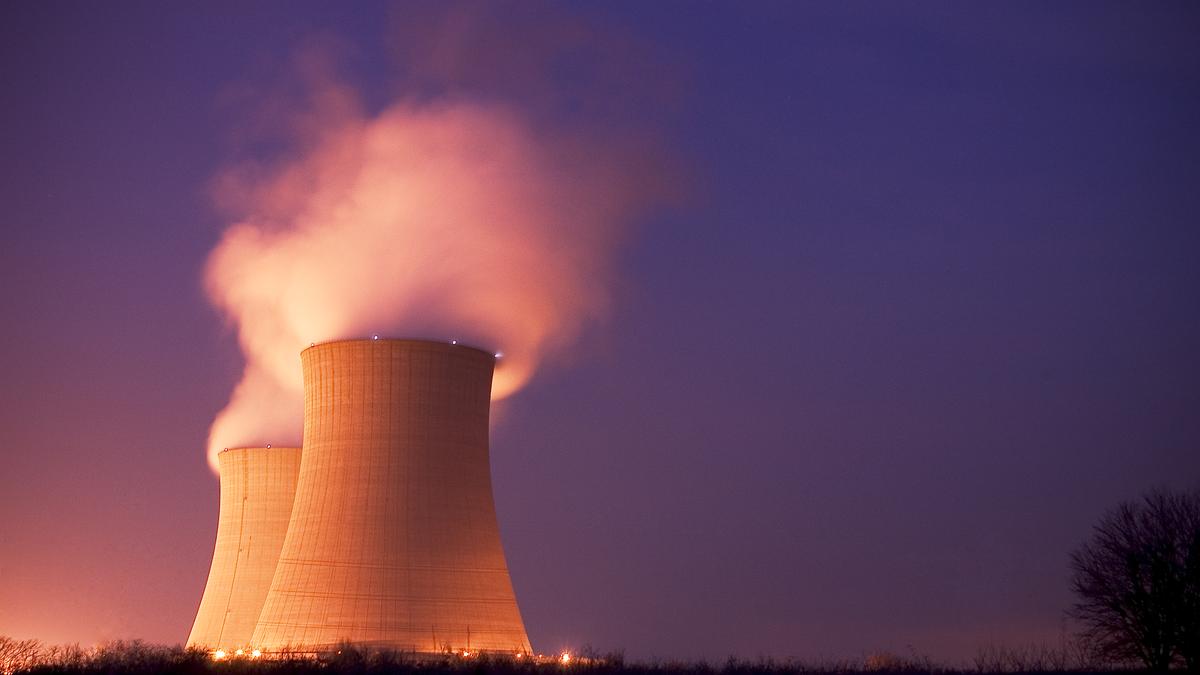
Advantage China in Africa’s nuclear energy market race Premium
The Hindu
As the global drive toward cleaner and more efficient energy accelerates, Africa will increasingly consider nuclear energy as a panacea to the problem
The Russia-Ukraine war has demonstrated the importance of energy security, where many European countries were caught scrambling and developing new energy partnerships. The devastating impact of the war did not spare Africa too despite the geographical distance. As African leaders are reworking the energy basket of their countries, nuclear energy is emerging as the driver of this energy transformation.
Currently, Africa has only one nuclear plant, at Koeberg in South Africa, built by a French consortium. However, other African countries, which includes Ghana, Nigeria, Sudan, Rwanda, Kenya and Zambia, are projecting the use of nuclear energy to enhance electricity access for their citizens.
According to some estimates, Africa is expected to generate 15,000 MW of nuclear energy by 2035. Africa’s nuclear energy market is poised for significant growth, representing an investment opportunity of $105 billion. Unsurprisingly, many countries want a slice of this strategic market.
So far, France has dominated Africa’s nuclear market. However, it is rapidly losing its influence and struggling to maintain its relevance, particularly in Francophone Africa. Meanwhile, since 2023, the United States has been organising the US-Africa Nuclear Energy Summit (USANES). However, it will depend on U.S. President Donald Trump on whether and how he wants to proceed with the U.S.’s nuclear expansion plan in Africa.
Russia, another important player in Africa’s nuclear market, has inked several agreements with Egypt, Mali, Burkina Faso, and Burundi. Since July 2022, Russia’s Rosatom has been building a reactor in El Dabaa, Egypt, though progress is slow. With Korea Hydro and Nuclear Power (KHNP) at the helm, South Korea has also shown its interest in capturing this untapped market. However, the country that is undoubtedly winning the race for the nuclear market is China.
China’s nuclear ambition in Africa is a relatively new phenomenon. In 2012, in cooperation with the International Atomic Energy Agency (IAEA), the China Atomic Energy Authority began a scholarship programme for students from African and South Asian countries wishing to develop national nuclear programmes. It served, among other things, to provide training in Chinese procedures and equipment to increase the chances of African countries purchasing them. Today, China has more than 50 operating reactors. Undoubtedly, China has emerged as an attractive partner for African countries interested in developing nuclear energy.
China’s nuclear expansion in Africa is being spearheaded by two large state-owned companies — the China General Nuclear Power Group (CGN) and the China National Nuclear Corporation (CNNC).

 Run 3 Space | Play Space Running Game
Run 3 Space | Play Space Running Game Traffic Jam 3D | Online Racing Game
Traffic Jam 3D | Online Racing Game Duck Hunt | Play Old Classic Game
Duck Hunt | Play Old Classic Game











